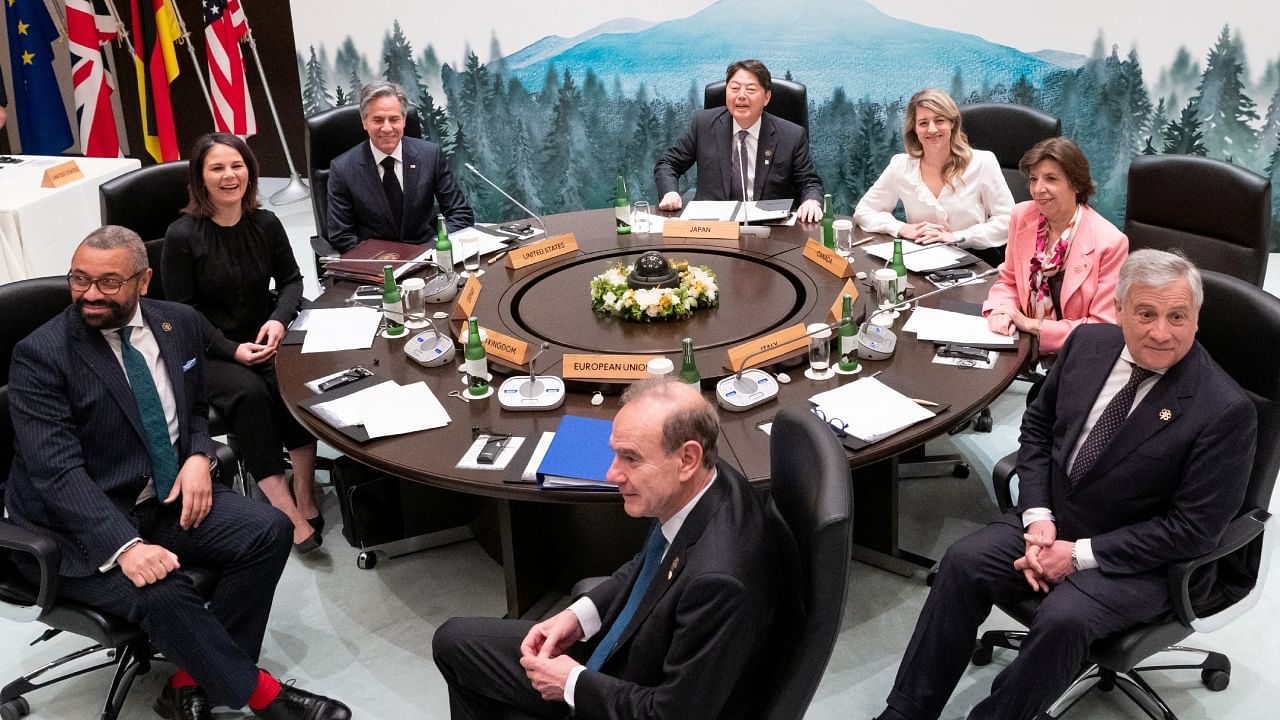
G7 foreign ministers on Tuesday demanded North Korea "refrain" from further nuclear tests and ballistic missile launches, warning of a "robust" response after talks in Japan.
Their warning came days after Pyongyang said it had successfully tested a solid-fuel intercontinental ballistic missile, hailing it as a breakthrough for the country's nuclear counterattack capabilities.
Last week's launch was the latest in a string of banned weapons tests conducted by North Korea, which has already fired several of its most powerful ICBMs this year.
"We demand North Korea refrain from any other destabilising or provocative actions, including any further nuclear tests or launches that use ballistic missile technology," the top diplomats said in a statement.
"Such actions must be met with a swift, united, and robust international response, including further significant measures to be taken by the UN Security Council (UNSC)."
Testing a more technologically advanced solid-fuel missile was one of North Korean leader Kim Jong Un's goals in his military modernisation campaign, announced in his New Year report.
Such missiles are easier to store and transport, more stable and quicker to prepare for launch, and thus harder to detect and destroy pre-emptively.
"We strongly condemn North Korea's unprecedented number of unlawful ballistic missile launches, including the April 13 launch of what North Korea claimed as a solid-fuel intercontinental ballistic missile," the G7 ministers said.
"Each of these launches violated multiple United Nations Security Council Resolutions," they added.
"North Korea's actions, together with increasingly escalatory and destabilising rhetoric regarding the use of nuclear weapons, undermine regional stability and pose a grave threat to international peace and security."
At a military parade in Pyongyang in February, North Korea showed off a record number of nuclear and intercontinental ballistic missiles, including what analysts said was possibly a new solid-fuel ICBM.